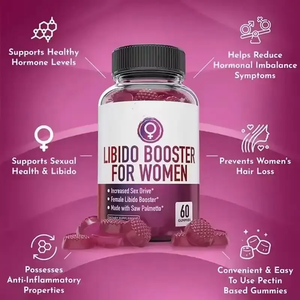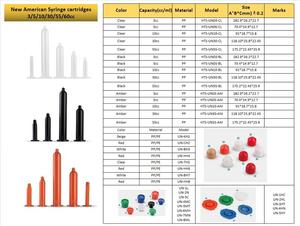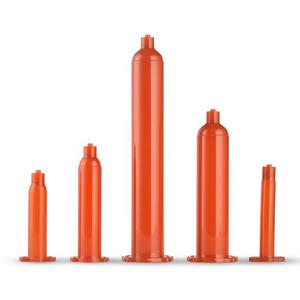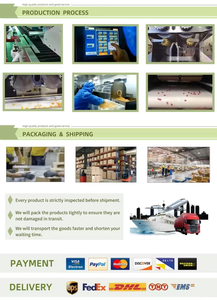
All categories
Featured selections
Trade Assurance
Buyer Central
Help Center
Get the app
Become a supplier

(3165 products available)





















using a suppository are an integral part of the chemical machinery industry, specifically designed to meet the intricate needs of packaging diverse chemical products. These machines cater to a wide range of applications, from packaging powders and granules to liquids and semi-solids. The precision and efficiency of using a suppository ensure that chemical products are packaged safely and consistently, maintaining their integrity and quality. As the demand for specialized packaging solutions grows, the technology behind these machines continues to evolve, offering enhanced functionality to serve various industrial needs.
The landscape of using a suppository is diverse, encompassing a range of machines tailored to specific packaging requirements. Common types include vacuum packaging machines, liquid filling machines, and powder filling machines. Vacuum packaging machines are ideal for preserving the freshness of chemical products by removing air from the package. Liquid filling machines are designed to handle various viscosities, ensuring accurate and spill-free packaging of liquid chemicals. Powder filling machines are equipped with precision dosing systems to manage different granule sizes efficiently. Each type of using a suppository is engineered to meet distinct industrial needs, providing reliability and productivity in packaging operations.
using a suppository offer a multitude of functions that are crucial for efficient packaging operations. They ensure precise dosing and filling, reducing waste and ensuring consistent product quality. Features such as automated control systems, adjustable speed settings, and user-friendly interfaces enhance operational efficiency and ease of use. Automated control systems allow for seamless integration with production lines, while adjustable speed settings cater to varying production demands. User-friendly interfaces enable operators to manage using a suppository with minimal training, reducing downtime. These advanced features contribute to the overall effectiveness and reliability of packaging processes in chemical industries.
The construction of using a suppository involves the use of robust materials to withstand the demanding environments of chemical packaging. Stainless steel is commonly used for its durability and resistance to corrosion, ensuring longevity and hygiene. High-grade polymers are employed in components that require flexibility and chemical resistance. Additionally, precision-engineered parts are utilized to achieve accurate dosing and filling, maintaining the integrity of the packaged products. The choice of materials impacts the machine's durability, performance, and safety, allowing manufacturers to tailor using a suppository to specific industrial applications. As sustainability becomes increasingly important, the industry is exploring eco-friendly materials to further enhance the environmental compatibility of these machines.
To maximize the benefits of using a suppository, understanding their operational capabilities is essential. Selecting the appropriate machine type based on the chemical product's characteristics is crucial for optimal performance. Ensure that the machine is calibrated correctly to prevent contamination and maintain product quality. Regular maintenance and servicing are vital to extend the lifespan of using a suppository and prevent unexpected breakdowns. Training operators on the machine's functions and safety protocols can significantly enhance productivity and minimize operational risks. Furthermore, exploring the integration of these machines with automated production lines can streamline packaging processes, offering cost-effective solutions for chemical industries.
When it comes to selecting using a suppository for chemical packaging, understanding the specific requirements of your operation is critical. The type of chemical product being packaged plays a significant role in determining the machine's suitability. For instance, packaging liquids may require liquid filling machines, while powders necessitate powder filling machines. It's important to consider the viscosity, particle size, and chemical properties to ensure the chosen using a suppository can handle the product efficiently. Additionally, the machine's capacity and speed should align with production needs to optimize throughput and maintain productivity.
Another crucial aspect is the compatibility of using a suppository with existing production lines. Integration with automated systems can streamline the packaging process, reducing manual intervention and increasing efficiency. Evaluate the machine's adaptability to your facility's layout and infrastructure to ensure seamless operation. Consider features such as adjustable settings and programmable controls, which allow for customization based on specific packaging requirements. These functionalities enhance the flexibility of using a suppository, making them versatile tools in chemical manufacturing environments.
Ensuring operator safety when using using a suppository involves implementing comprehensive training programs and adhering to safety protocols. Training should cover the machine's operational features, potential hazards, and emergency procedures. Regular maintenance checks are also vital to identify and rectify any mechanical issues that could pose risks. Furthermore, equipping machines with safety features such as emergency stop buttons and protective guards can mitigate accidents and ensure a safe working environment.
The efficiency of using a suppository is influenced by several factors, including the machine's design, technology, and compatibility with the product being packaged. Advanced technologies such as automated dosing systems and precision sensors enhance accuracy and reduce waste. The machine's ability to handle varying product characteristics, such as viscosity or particle size, also impacts efficiency. Regular maintenance and calibration ensure optimal performance, preventing downtime and maximizing productivity.
Customization of using a suppository is possible to meet specific packaging needs. Manufacturers offer options such as adjustable settings, interchangeable components, and programmable controls to tailor the machine's functions to particular requirements. This customization allows for greater flexibility in packaging diverse chemical products, accommodating variations in production demands. Collaboration with machine suppliers can facilitate the design of bespoke solutions that address unique operational challenges.
Maintaining using a suppository can present challenges such as wear and tear, component failures, and calibration issues. Regular inspections and servicing are essential to identify potential problems early and prevent costly breakdowns. Keeping detailed maintenance records helps track machine performance and schedule timely interventions. Additionally, sourcing high-quality spare parts and components ensures the longevity and reliability of using a suppository, minimizing disruptions in packaging operations.
Improving the environmental sustainability of using a suppository involves adopting eco-friendly practices and technologies. Consider machines designed to minimize waste and energy consumption, such as those with efficient dosing systems that reduce material usage. Utilizing machines made from sustainable materials also contributes to environmental goals. Furthermore, exploring innovations in biodegradable packaging materials can enhance the sustainability of chemical packaging processes, aligning operations with eco-conscious objectives.